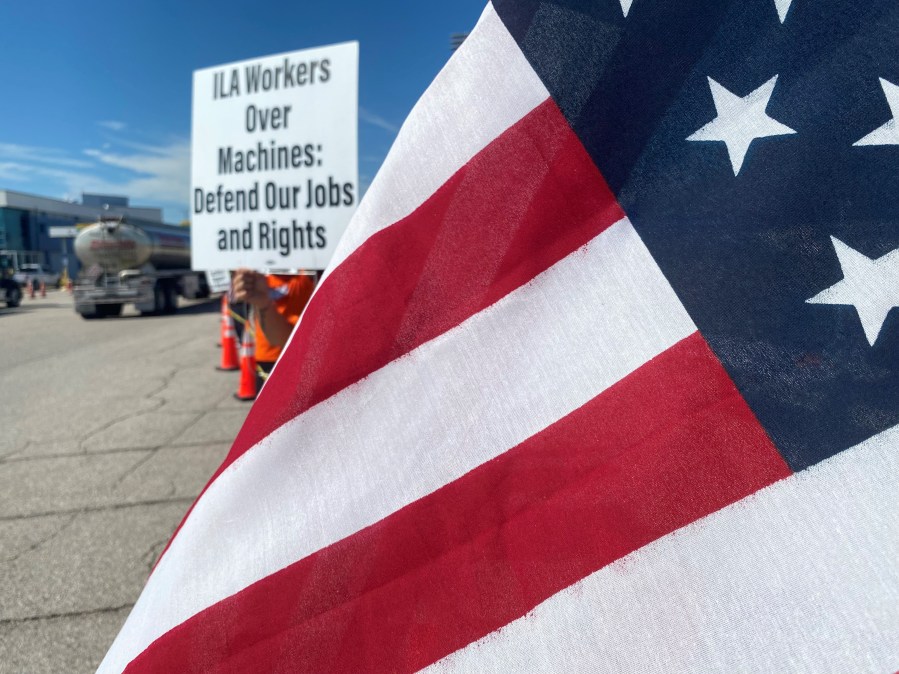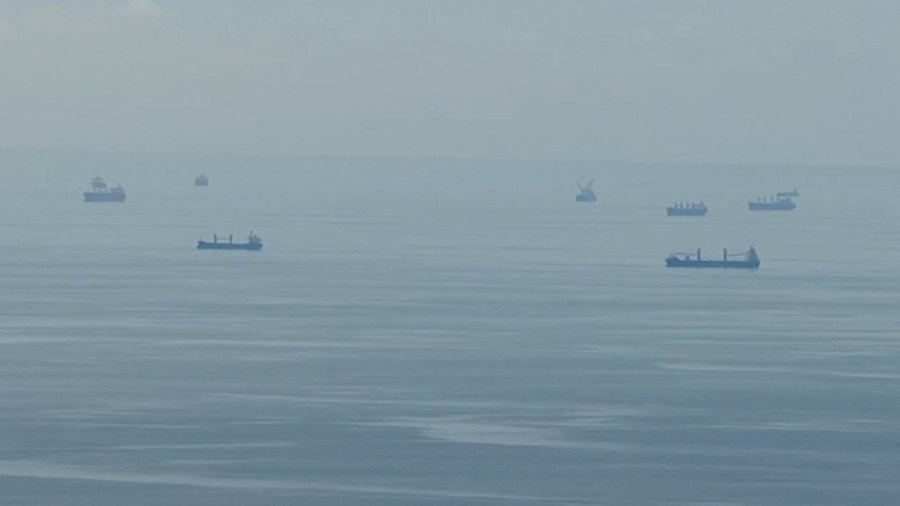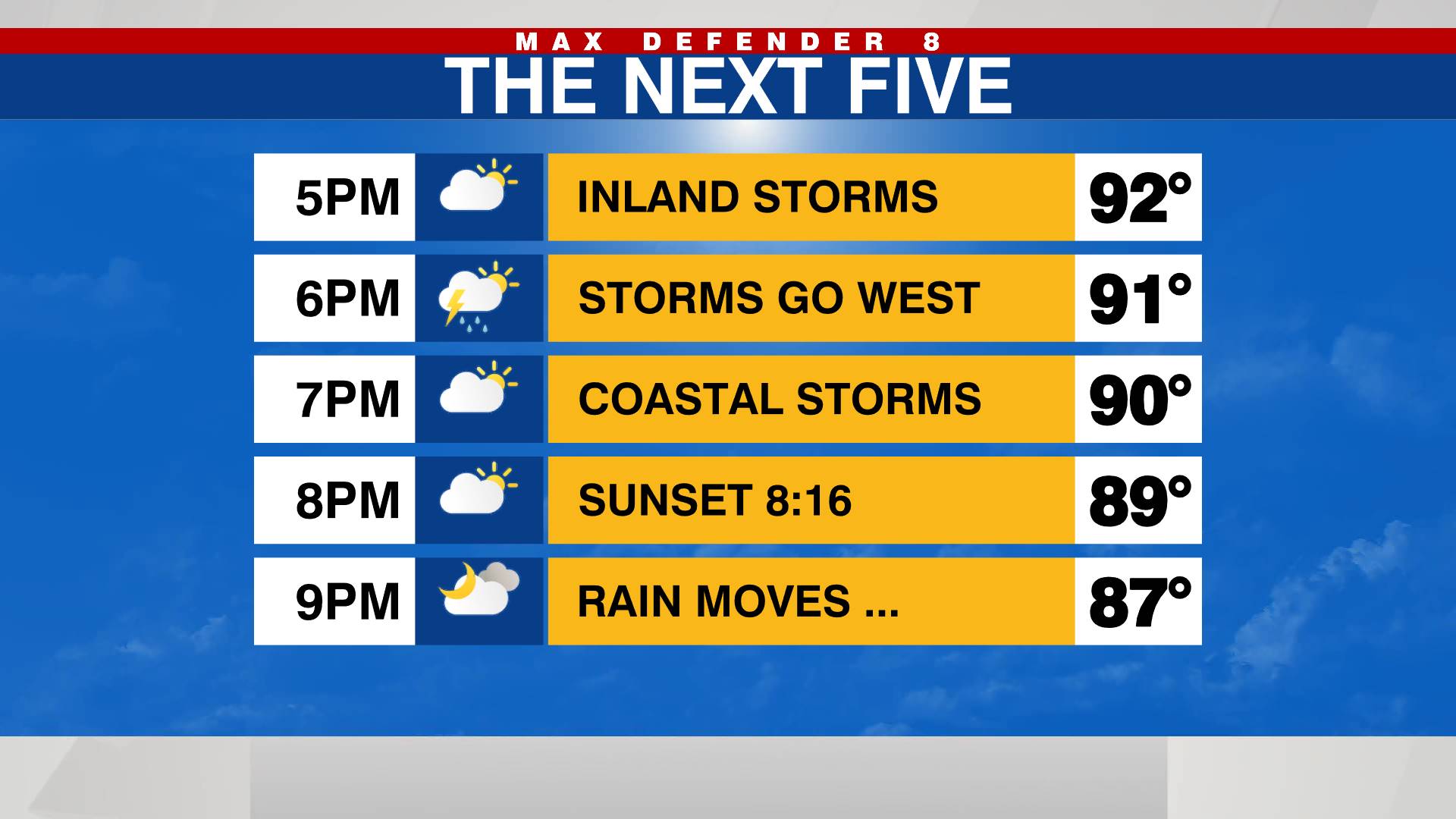TAMPA, Fla. (WFLA) — Consumers will see it not only see impacts on the shelves but also feel it in their wallets as dockworkers and longshoremen in East Coast ports are now on strike.
Port workers picketed outside Port Tampa Bay on Wednesday, calling for more money and guarantees that their job won’t be automated.
“One of the things I’m concerned about is these ports getting hung up,” said Gov. Ron DeSantis.
Gov. DeSantis said he’s concerned the walkout by dock workers could delay much-needed supplies to hurricane damaged areas in the state.
The local International Longshoremen’s Association (ILA) said it’s a fight for American workers.

“We’re protecting jobs, we’re protecting our families, the communities that we work for because it can happen to anybody else and wages is second,” said Nicholas DiFresco, President ILA Local1691 Clerks and Checkers.
The U.S. Maritime Alliance offered a 50% increase over six years, but the ILA rejected it.
A spokesperson with USMX shared this statement:
We have demonstrated a commitment to doing our part to end the completely avoidable ILA strike. Our current offer of a nearly 50% wage increase exceeds every other recent union settlement, while addressing inflation, and recognizing the ILA’s hard work to keep the global economy running. We look forward to hearing from the Union about how we can return to the table and actually bargain, which is the only way to reach a resolution.
“They want you to believe that it’s our fault because we’re doing what we’re supposed to do: collective-bargaining and ask for a piece of the pie,” DiFresco said.
From Boston to Miami down the East Coast and into the Gulf Coast from Tampa to Houston, the International Longshoreman Association represents thousands of workers in ports that handle products Americans use every day, from fresh produce to electronics to petroleum.
A Port Tampa Bay spokesperson shared this statement with News Channel 8:
Port Tampa Bay is monitoring the situation and the stand-off in negotiations between the International Longshoremen’s Association (ILA) and the U.S. Maritime Alliance (USMX), which is impacting all major container ports along the East and Gulf Coasts. Ports America, the container terminal operator at Port Tampa Bay, and a member of USMX, has been in communication with their customers that are impacted by the strike. Port Tampa Bay remains in continuous contact with Ports America about the status of negotiations and will provide updates as more information becomes available.
8 On Your Side asked Florida Ports Council president and CEO Michael Rubin if the necessary supplies needed after Hurricane Helene will arrive to help those in crisis.
“It’ll be slow,” he said. “Obviously the West Coast is open, but that’s a long trip.”
It’ll cost time and money. Rubin said depending on how long this continues, it could cost trillions.

Now, container and cargo ships sit waiting in the Gulf of Mexico off the storm-ravaged Pinellas County coast.
“I think it would be a really, really bad look for the Biden-Harris Administration to allow supplies to just be sitting in the Atlantic Ocean just on ships idling when you have people not just here in Pinellas County, but on the Gulf Coast and Big Bend who need it,” Gov. Ron DeSantis.
DeSantis is calling it an “intolerable” and emergency situation as each day passes without a new deal.
Pressure could grow for the Biden Administration to intervene even though President Joe Biden has said he won’t. The president could seek a court order for an 80-day cooling off period that would end the strike temporarily under the federal Taft-Hartley Act.
“There’s collective bargaining, and I don’t believe in Taft-Hartley,” Biden said.
West and East Coast dockworkers have separate unions. West Coast longshoremen agreed to a new six-year contract last year that included a 32% raise.















